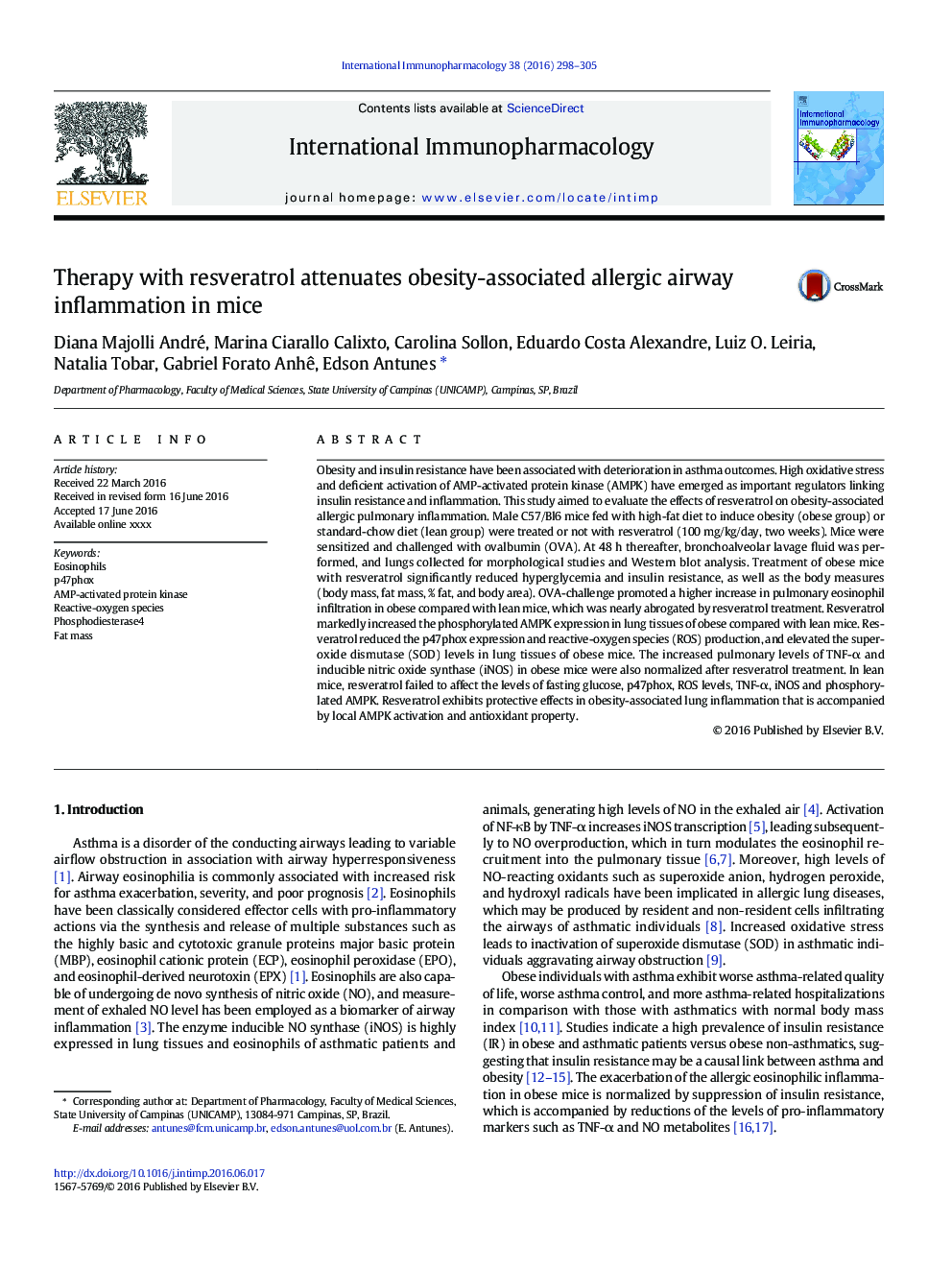| Article ID | Journal | Published Year | Pages | File Type |
|---|---|---|---|---|
| 5831787 | International Immunopharmacology | 2016 | 8 Pages |
Abstract
Obesity and insulin resistance have been associated with deterioration in asthma outcomes. High oxidative stress and deficient activation of AMP-activated protein kinase (AMPK) have emerged as important regulators linking insulin resistance and inflammation. This study aimed to evaluate the effects of resveratrol on obesity-associated allergic pulmonary inflammation. Male C57/Bl6 mice fed with high-fat diet to induce obesity (obese group) or standard-chow diet (lean group) were treated or not with resveratrol (100 mg/kg/day, two weeks). Mice were sensitized and challenged with ovalbumin (OVA). At 48 h thereafter, bronchoalveolar lavage fluid was performed, and lungs collected for morphological studies and Western blot analysis. Treatment of obese mice with resveratrol significantly reduced hyperglycemia and insulin resistance, as well as the body measures (body mass, fat mass, % fat, and body area). OVA-challenge promoted a higher increase in pulmonary eosinophil infiltration in obese compared with lean mice, which was nearly abrogated by resveratrol treatment. Resveratrol markedly increased the phosphorylated AMPK expression in lung tissues of obese compared with lean mice. Resveratrol reduced the p47phox expression and reactive-oxygen species (ROS) production, and elevated the superoxide dismutase (SOD) levels in lung tissues of obese mice. The increased pulmonary levels of TNF-α and inducible nitric oxide synthase (iNOS) in obese mice were also normalized after resveratrol treatment. In lean mice, resveratrol failed to affect the levels of fasting glucose, p47phox, ROS levels, TNF-α, iNOS and phosphorylated AMPK. Resveratrol exhibits protective effects in obesity-associated lung inflammation that is accompanied by local AMPK activation and antioxidant property.
Related Topics
Life Sciences
Immunology and Microbiology
Immunology
Authors
Diana Majolli André, Marina Ciarallo Calixto, Carolina Sollon, Eduardo Costa Alexandre, Luiz O. Leiria, Natalia Tobar, Gabriel Forato Anhê, Edson Antunes,
